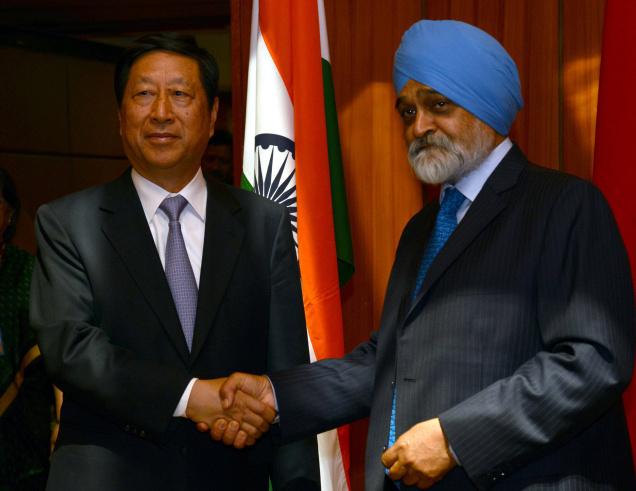
New Delhi, November 27: Displaying enhanced trust, India and China on Monday formulated an economic strategy for increasing trade and ensuring development and economic growth amid global economic slowdown.
The planning commissions of the two Asian majors signed as many as 11 MoUs worth $5 billion (Rs. 27,865 crore) allowing market access to financial institutions in either country to boost investment and expand commercial operations.
The Second India-China Strategic Economic Dialogue between the Planning Commission of India and the National Development and Reform Commission of China successfully deliberated on a host of issues for “greater cooperation at the global level, strengthening communication on macroeconomic policies, deepening and expanding trade and investment and promoting bilateral cooperation in the financial and infrastructure sectors.”
Deputy Chairman of Planning Commission Montek Singh Ahluwalia and his Chinese counterpart Zhang Ping discussed the outcomes of the working groups on policy coordination, infrastructure, energy, environment protection and high-technology set up at the first dialogue held in Beijing in September 2011.
The two sides decided to increase their cooperation to cope with the global situation and pursue common interests in international monetary and financial systems; stabilise the volatility in global commodity markets; work towards sustainable development and climate change goals; and ensure food and energy security.
Concerned over the declining global growth trends and demand, the two countries decided to jointly strive to maintain continued economic growth through a slew of agreed measures.
For expanding trade and investment, the thrust would be on an open trade regime by removing market barriers, enhancing business exchanges and improving transportation links, Mr. Ahluwalia told reporters.
Bilateral trade would be enhanced from $74 billion to $100 billion, Mr. Ahluwalia said, adding that both were working to make it more balanced.
The two countries also agreed for greater financial cooperation by allowing financial institutions to set up operations in either country and expanding commercial operations and support enterprises.
They also agreed on conducting joint studies on issues of mutual interest focusing on benefits of best practices and information exchanges and skills development, among other sectors.








Comments
Add new comment